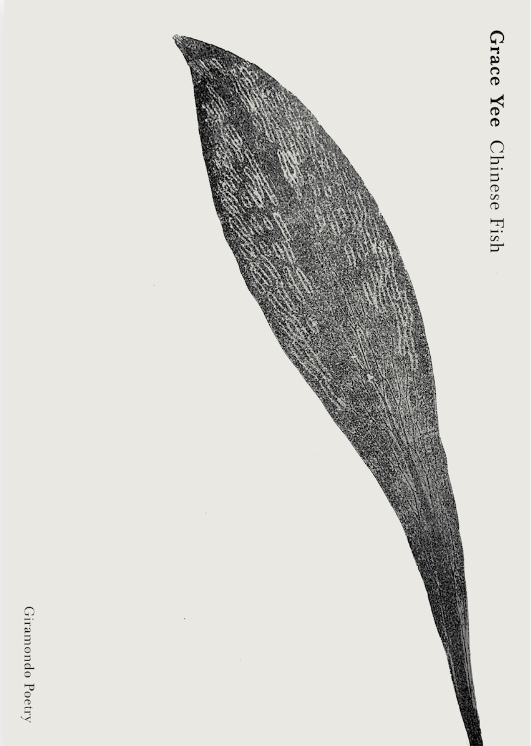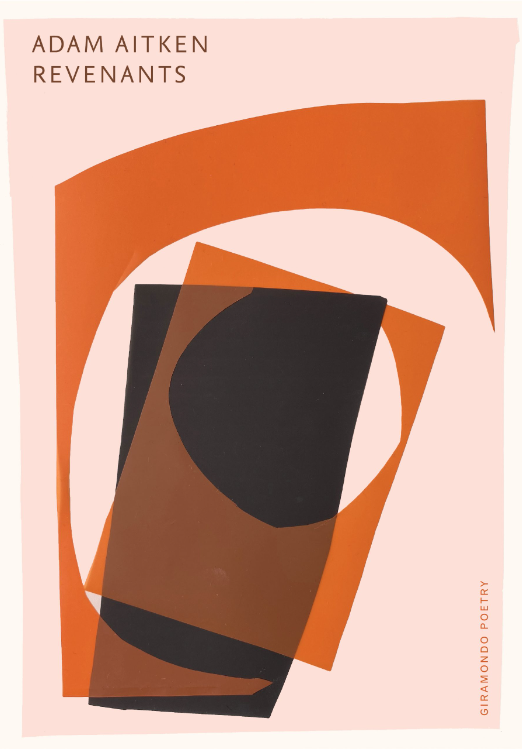
 Chinese Fish by Grace Yee
Chinese Fish by Grace Yee
Giramondo, 2023
Revenants by Adam Aitken
Giramondo, 2023
“The limits of my language are the limits of my world.” During the excitement of multiple events and literary get-togethers at the Ubud Writers Festival this year, the Indian poet, Sudeep Sen, brought to my attention Wittgenstein’s well-known quotation from the Tractatus of 1922. It seemed particularly apt as multiple languages, overheard in the daily comings and goings around festival sites, lit up many a conversation. The potency and limits of language seemed a good place to start in considering these two collections, Grace Yee’s Chinese Fish (Giramondo 2023) and Adam Aitken’s Revenants (Giramondo 2022), where language constricts and amplifies, in Yee’s case moulding the plasticity of objects into gorgeously caught form, and in Aitken’s, with his ironic, sardonic dip into an aesthetic alert to Wallace Stevens, capturing the air and breath of (in particular) colonial disquiet and reverberation.
Grace Yee’s Chinese Fish is one of the most elaborately structured collections of poetry I’ve come across in some time. In a remarkable account of a multi-generational Chinese family and their experience of migration to an insular New Zealand, where racial prejudice was both legislated and part of common discourse, a number of expertly used structural devices assist in presenting poetry of captivating clarity. In the first instance, the collection is presented chronologically, and divided into ‘chapters’ that carry a number of structural devices within them. Each section begins with a short preface, usually either in the voice of colonial condescension, or in the voice of the most prominent character, Ping. The voice of Ping appears in short and clipped lines which are both comic and full of pathos, thus giving her a tender agency. Wittgenstein’s contention appears most relevant here, where the introduction into the text of Cantonese and Taishanese languages amplifies the cultural context, hinting at another world outside the constrained life lived under the umbrella of familial and settler expectations. The issue of amplification is an interesting one, its significance varying with cultural norms and linguistic ability. In Chinese Fish, the resonance of first language/s act as a counterweight to a pompous, uneducated colonial voice intoning its way through the book, eliciting horror and dark comedy to chilling effect:
For these immigrants
from the impoverished
unsanitary
villages of China,
where beggars and vagabonds are numerous,
and lepers particularly wretched,
where the coast is infested
with pirates, children
kidnapped and sold, and whole families
live on boats,
New Zealand is a paradise.
(17)
Typographically, the employment of grey text to denote institutionally mandated discrimination, is very effective. Also very effective is the use of graphic features, such as large text featuring the language of sales brochures and representing the allure of consumer goods:
LOVINGLY
LAMINATED
Draw-Leaf Tables
An Easy Solution
For Unexpected Guests
Lifetime Guarantee
(22)
The imagery itself thrives within the felicity of organisation. Several sections celebrate the move to a new house, each better than the last, and are a delight to read:
Stan buys Ping a red-brick house in a sea of gravel and rocks the size of golf balls in a brand new housing estate. The front door is horizontal panes of frosted glass ribbed like the washboard in the laundry, the bathroom a stainless steel shower base, the living room a glazed hearth, the bedrooms fawn-striped walls embossed with sprigs of wheat, red-faux-velvet curtains for all the world to see. (28)
The employment of Ping as the central character in Chinese Fish gives the narrative devices a cohesive impetus. She is a woman left to navigate between two oppressive walls, between the expectations laid upon her from within her own family, and the racist attitudes of an insular society laying out no welcome mat. We first meet her in Hong Kong giving birth to Cherry. She is rendered defenceless, all agency co-opted by female relatives. At home with the baby, Grandfather disapproves of the young mother wearing pedal pushers. When she asks if she may go out:
Grandfather snorts. Go then…go!...and put some clothes on! He’s noticed the mother’s brand new pedal-pushers, the ones she bought last week from Wing On (12)
Once settled in New Zealand, husband Stan is revealed as a hard worker, but a drinker and gambler who is brusque, inconsiderate, and ultimately unfaithful. Ping finds herself in a silent, isolated suburbia reminiscent of that so evocatively displayed in Clara Law’s excellent film, Floating Life (1996):
It’s night and all that can be seen are the black roll of
flatlands, coniferous shadows, rows of squat box bungalows,
rooves pitched low […]
[…] Ping steps out into a million-starred hush – no traffic horns
sizzling woks banging cleavers clacking mah-jong tiles […]
[…] seven-thirty in the evening, her
kitten heels sinking in the dew-soaked lawn, the whole world
asleep.
(18)
Within this isolation, Ping works in the family fish and chip shop to the point where it becomes both a badge of honour but also a danger to her life:
when my mother dressed to go out she would spend hours setting her hair and powdering her face and she’s put her feet in pretty sandals, that her crusty black heels were on show didn’t seem to bother her in the slightest. I think they were her parting shot, a way of saying as she left the place: yes, I do look nice, don’t I? but look how hard I have to work for it. (54)
When the doctor says, Stan, your wife’s blood pressure is dangerously high she needs to be on complete bed-rest, Ping shuffles out to the car in her dressing gown, the peonies on her slippers unravelling. (80)
To be oppressed by custom can often lead to inculcated attitudes being imposed on offspring, for instance when daughter Cherry finds herself being denied much-needed glasses:
Mister H., the optometrist: Your daughter needs to wear her
glasses all the time.
Ping: Nooooo – she’s OK.
Mister H.: Mrs Chin. She can’t read the biggest letters on the
chart without them..
Cherry: I can’t see without them –
Ping: Then better not see.
(94)
Although Chinese Fish may sound very grim (and it certainly is, in part) the writing has a lightness of touch that enables a number of humorous strategies to be brought into the work. It is a joyous celebration of the materiality of a life, of the chaotic sights and smells of a family life which is loud, disorganised, and adept at adapting its rituals to a society that is silent, organised, and judgemental. I particularly enjoyed the admittedly terrifying antics of Baby Joseph, who punches a hole in the wall of kindly Missus A’s house, and who chases the neighbourhood bullies, the Macallisters, with a meat cleaver when they attempt to steal his kite:
Cherry stamps her feet, stomps home, runs into Baby
Joseph tearing out into the street, face pre-tantrum red, clutching
Ping’s meat cleaver.
Joseph! What are you doing?
I’m gonna get them!
Give me the knife!
It’s my kite!
(67)
Grace Yee has succeeded in illuminating a certain way of life, a life devoted to material improvement within boundaries established for a minority group by the dominant culture. Documentary depiction of racist restrictions formulated in official regulations, newspaper fulminations in letters to the editor such as the one from “A STERLING KIWI,” and personal interactions in suburb and school are successfully employed to create what is essentially a verse novel of original structure (29). The plasticity of the language and the focus on the material suggests the legacy of William Carlos Williams but drawing its strength from documentary textual inclusions rather than through the resonance of what could be called the immanence of image central to much poetry.













